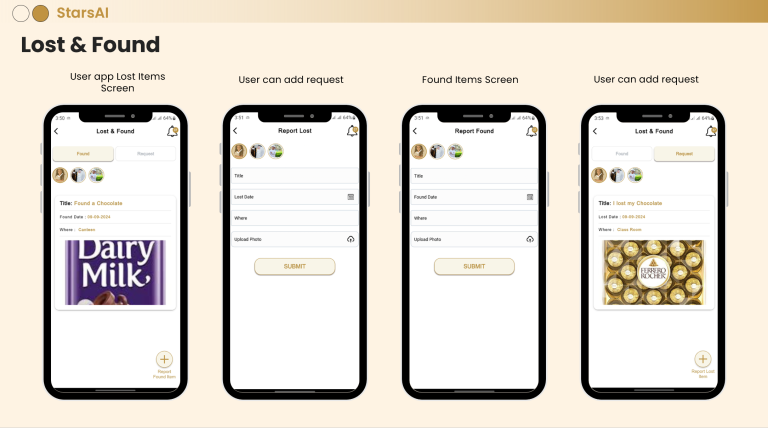Cataloging and Classification: Streamlining Library Organization with an LMS
In the intricate world of library management, the processes of cataloging and classification form the backbone of an efficient and well-organized system. A School Management Software Solution, incorporating features such as Library Management Systems (LMS), plays a pivotal role in ensuring systematic cataloging and classification of books and other materials, revolutionizing the way libraries operate.

Systematic Cataloging:
An LMS employed within a School Management Software Solution follows a systematic approach to cataloging, assigning unique identifiers and categorizing resources based on predefined criteria. This not only ensures a structured arrangement of materials but also simplifies the process of locating specific items within the library.
Importance of Standardized Metadata:
Standardized metadata is the key to unlocking the full potential of a library’s collection. School Management Software Solutions ensure that each resource is tagged with consistent and standardized metadata, including information about the author, title, subject, and publication date. This standardized approach significantly enhances the efficiency of the cataloging process.
Easy Retrieval for Users:
With standardized metadata, users can easily search and retrieve the materials they need. The systematic cataloging and classification facilitated by the LMS within a School Management Software Solution translate into a user-friendly experience, empowering students, teachers, and researchers to locate relevant resources with minimal effort.
User Management: Tailoring Library Experiences for Individuals
In the digital age, libraries are not just repositories of books; they are dynamic hubs of personalized learning experiences. User management features within an LMS integrated into a School Management Software Solution are designed to elevate these experiences by understanding and catering to the unique needs of library patrons.
Features of User Accounts:
An LMS integrated into a School Management Software Solution provides a sophisticated user account system, allowing library patrons to create personalized profiles. This feature not only simplifies the borrowing and returning process but also opens the door to a range of personalized services.
Personalized Experiences:
User data captured through the LMS within a School Management Software Solution goes beyond the basics, delving into individual preferences, reading history, and areas of interest. By analyzing this data, the LMS can offer personalized recommendations, suggesting books, articles, or resources tailored to each user’s specific needs and preferences.
Emphasizing the Role of User Data:
User data becomes a valuable asset in shaping the library’s collection and services. By understanding the preferences and behaviors of library users, librarians can make informed decisions about resource acquisition, ensuring that the library remains a vibrant and relevant source of information.
What is a Library Management System?
A Library Management System (LMS) is a comprehensive tool designed to streamline and enhance the functioning of a library. It encompasses various features, including systematic cataloging, user management, and standardized metadata, to ensure the efficient organization and retrieval of library resources.
Advantages of Library Management Systems
Improved User Experience:
24/7 Access to Resources:
- Discuss how an LMS extends library access beyond traditional hours.
- Emphasize the convenience for students and faculty to access resources anytime, anywhere.
Enhanced Search and Discovery:
- Explain how advanced search features improve the discovery of relevant materials.
- Discuss the impact on research efficiency and information retrieval.
Streamlined Library Operations:
Efficient Inventory Management:
- Discuss the advantages of accurate inventory control.
- Highlight the reduction in lost or misplaced items and associated costs.
Automated Workflows:
- Discuss the time-saving benefits of automated check-in/check-out processes.
- Emphasize how automation contributes to a more streamlined and efficient library operation.
Data-Driven Decision Making:
Usage Analytics:
- Explain how an LMS provides valuable insights into library usage.
- Discuss how analytics can inform decisions on resource acquisition and allocation.
User Feedback and Preferences:
- Discuss the role of user feedback in shaping the library’s collection and services.
- Highlight the importance of tailoring offerings to meet the specific needs of the school community.
Conclusion: Empowering Libraries, Empowering Users
In conclusion, the integration of an LMS within a School Management Software Solution transforms libraries into dynamic, user-centric spaces. From systematic cataloging and classification to personalized user experiences, the benefits extend beyond the organizational realm, enriching the overall library experience for both staff and patrons. As libraries continue to evolve, embracing technological solutions like School Management Software Solutions becomes not just a choice but a necessity in providing an accessible, efficient, and personalized learning environment.


